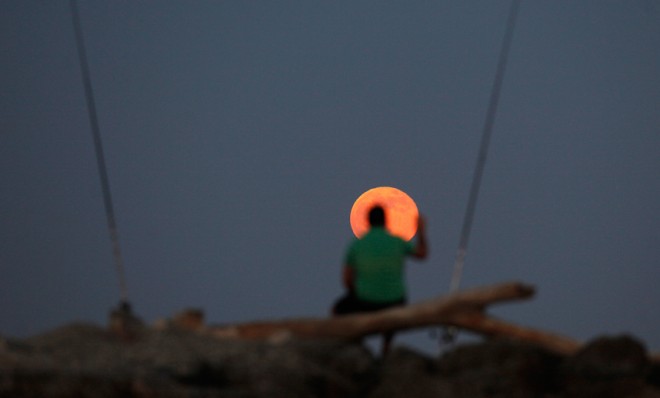The next frontier for national parks: The moon
Two House Democrats propose turning the Apollo landing sites into historical parks


A free daily email with the biggest news stories of the day – and the best features from TheWeek.com
You are now subscribed
Your newsletter sign-up was successful
One doesn't normally associate the National Park Service with space travel, but two Democrats in the House of Representatives are seeking to change that, calling on the U.S. establish a historical park on the lunar surface.
On Monday, Reps. Donna Edwards (D-Md.) and Eddie Bernice Johnson (D-Texas) proposed creating the Apollo Lunar Landing Sites National Historical Park. They say the designation is necessary to protect the spots where the Apollo 11 through 17 missions (minus Apollo 13, which was aborted) landed on the moon between 1969 and 1972, as well as all the artifacts the 12 astronauts who walked on the moon left behind.
The idea of preserving the Apollo missions is not entirely new. In 1984 the National Air and Space Museum asked NASA to hand over control of the Apollo lunar artifacts. "Although there are, at present, no plans for return visits to the moon, it is certain as anything that someday man will return," said the museum's director at the time, Walter J. Boyne "When he does, it is imperative that the historic and scientific significance of all remnants of earlier, pioneering exploration efforts be fully appreciated and respected."
The Week
Escape your echo chamber. Get the facts behind the news, plus analysis from multiple perspectives.

Sign up for The Week's Free Newsletters
From our morning news briefing to a weekly Good News Newsletter, get the best of The Week delivered directly to your inbox.
From our morning news briefing to a weekly Good News Newsletter, get the best of The Week delivered directly to your inbox.
In the past, the National Park Service has rejected the idea, in part because of one inconvenient fact: The moon does not belong to the U.S.
However, the proposed bill — the Apollo Lunar Landing Legacy Act, H.R. 2617 — says that the time for action is running out. "As commercial enterprises and foreign nations acquire the ability to land on the Moon," the bill says, "it is necessary to protect the Apollo lunar landing sites for posterity."
The measure would give the government clearance to accept donations to manage the sites, and "provide visitor services and administrative facilities within reasonable proximity to the Historical Park." Edwards and Bernice Johnson — both members of the House Science, Space, and Technology Committee — might not get the bill passed, but that doesn't mean the dream of establishing the park will die.
Space tourism is coming — the company Space Exploration Technologies, or SpaceX, is already gearing up to take paying customers into low orbit. And when thrill-seeking vacationers finally do reach the moon, they are sure to flock to the Apollo sites the way they flock to the Grand Canyon and Yellowstone here on Earth.
A free daily email with the biggest news stories of the day – and the best features from TheWeek.com
Shouldn't there be some park rangers waiting to greet them, and to make sure they don't trash the place?
Harold Maass is a contributing editor at The Week. He has been writing for The Week since the 2001 debut of the U.S. print edition and served as editor of TheWeek.com when it launched in 2008. Harold started his career as a newspaper reporter in South Florida and Haiti. He has previously worked for a variety of news outlets, including The Miami Herald, ABC News and Fox News, and for several years wrote a daily roundup of financial news for The Week and Yahoo Finance.
-
 Film reviews: ‘Send Help’ and ‘Private Life’
Film reviews: ‘Send Help’ and ‘Private Life’Feature An office doormat is stranded alone with her awful boss and a frazzled therapist turns amateur murder investigator
-
 Movies to watch in February
Movies to watch in Februarythe week recommends Time travelers, multiverse hoppers and an Iraqi parable highlight this month’s offerings during the depths of winter
-
 ICE’s facial scanning is the tip of the surveillance iceberg
ICE’s facial scanning is the tip of the surveillance icebergIN THE SPOTLIGHT Federal troops are increasingly turning to high-tech tracking tools that push the boundaries of personal privacy
